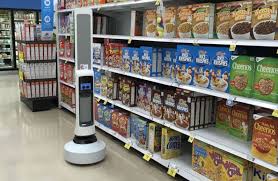
Breaking News
 BREAKING EXCLUSIVE: Kyle Rittenhouse Warns The Left Is Preparing To Stage A False Flag To Blame...
BREAKING EXCLUSIVE: Kyle Rittenhouse Warns The Left Is Preparing To Stage A False Flag To Blame...
 The Biggest Grid We Escaped (It Wasn't Power)
The Biggest Grid We Escaped (It Wasn't Power)
 Both Sides Gear Up For "War" As An Internal Revolution Begins To Erupt In The United State
Both Sides Gear Up For "War" As An Internal Revolution Begins To Erupt In The United State
 The Good News Is People Are Realizing We're On Our Own
The Good News Is People Are Realizing We're On Our Own
Top Tech News
 World's most powerful hypergravity machine is 1,900X stronger than Earth
World's most powerful hypergravity machine is 1,900X stronger than Earth
 New battery idea gets lots of power out of unusual sulfur chemistry
New battery idea gets lots of power out of unusual sulfur chemistry
 Anti-Aging Drug Regrows Knee Cartilage in Major Breakthrough That Could End Knee Replacements
Anti-Aging Drug Regrows Knee Cartilage in Major Breakthrough That Could End Knee Replacements
 Scientists say recent advances in Quantum Entanglement...
Scientists say recent advances in Quantum Entanglement...
 Solid-State Batteries Are In 'Trailblazer' Mode. What's Holding Them Up?
Solid-State Batteries Are In 'Trailblazer' Mode. What's Holding Them Up?
 US Farmers Began Using Chemical Fertilizer After WW2. Comfrey Is a Natural Super Fertilizer
US Farmers Began Using Chemical Fertilizer After WW2. Comfrey Is a Natural Super Fertilizer
 Kawasaki's four-legged robot-horse vehicle is going into production
Kawasaki's four-legged robot-horse vehicle is going into production
 The First Production All-Solid-State Battery Is Here, And It Promises 5-Minute Charging
The First Production All-Solid-State Battery Is Here, And It Promises 5-Minute Charging
 See inside the tech-topia cities billionaires are betting big on developing...
See inside the tech-topia cities billionaires are betting big on developing...
Meet Tally: The Grocery Stocking Robot About To Eradicate 1,000's Of Minimum Wage Jobs

But, as we pointed out back in May, well before Amazon's decision to buy Whole Foods, Amazon's success in penetrating the traditional grocery market was always a matter of when, not if. Concept stores, like Amazon Go, already exist that virtually eliminate the need for dozens of in-store employees which will allow them to generate higher returns at lower price points than traditional grocers. And, with grocery margins averaging around 1-2% at best, if Amazon, or anyone for that matter, can truly create smart stores with no check outs and cut employees in half they can effectively destroy the traditional supermarket business model.
And while the demise of the traditional grocery store will undoubtedly take time (recall that people were calling for the demise of Blockbuster for nearly a decade before it finally happened), make no mistake that the retail grocery market 10-15 years from now will not look anything like the stores you visit today.

 Storage doesn't get much cheaper than this
Storage doesn't get much cheaper than this

